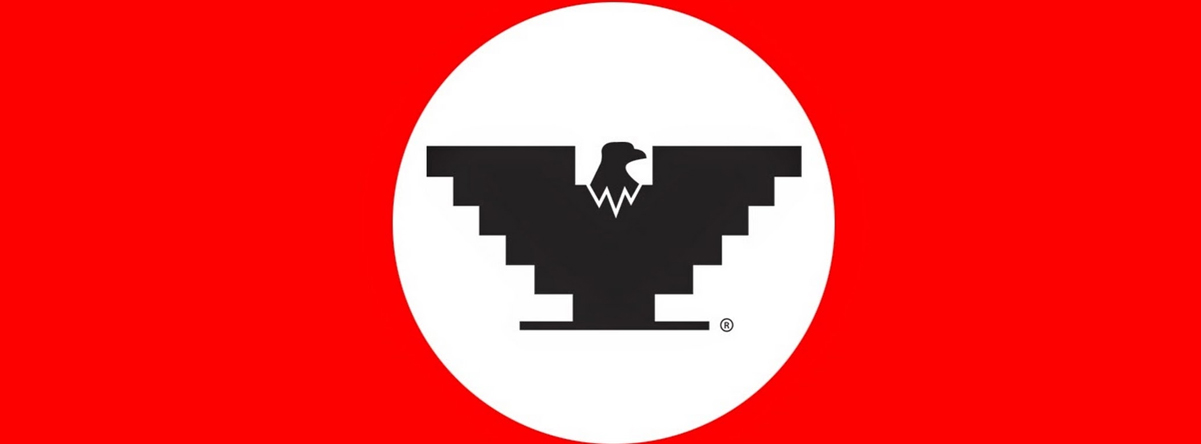San Francisco—Hundreds of farm workers from across California will attend oral arguments on Tuesday, Sept. 5 before the California Supreme Court on grower challenges to the state’s Mandatory Mediation and Conciliation law. It was enacted in 2002 because the great majority of farm workers who voted for a union since the state farm labor law passed in 1975 never won the union contracts for which they voted. The Mandatory Mediation law lets farm workers request neutral state mediators to hammer out contracts when the parties can’t agree on them. If it is overturned, thousands of California farm workers will lose their chance to achieve the benefits union contracts bring.
Chiefly orchestrating the legal challenge is Gerawan Farming Inc., a giant Fresno-based tree fruit producer that already owes its thousands of workers more than $10 million under terms of a union contract issued by a state mediator and approved by the Agricultural Labor Relations Board in 2013.
The agricultural industry mounted a major constitutional challenge to the law that was rejected in a 2006 ruling by the Third District Court of Appeals in Sacramento. The state Supreme Court refused to hear the industry’s appeal of that decision and the law’s constitutionality was settled when the industry declined an appeal to the U.S. Supreme Court. But Gerawan mounted its own challenge to the law, finding a friendlier venue in its hometown of Fresno with the Fifth District Court of Appeals, considered one of the state’s most conservative benches. The Fifth District overturned the law in 2015. With conflicting rulings by two appeals courts, the high court took the case.
Both the Gerawan case and a similar appeal from another grower being heard the same day claim the Mandatory Mediation law should not be applied to them because the UFW allegedly “abandoned” workers at the two companies. Even before the law was passed in 2002, both the ALRB and the courts consistently rejected such employer arguments and the UFW says Gerawan’s claims in particular are specious (see below).
Why is the Mandatory Mediation law needed?
Under this law, after regular bargaining proves unsuccessful either party can request a neutral state mediator to resolve outstanding issues of disagreements. The mediator’s decision can be appealed to the full ALRB board, which must approve the mediator’s opinion and issue a final order that becomes the union contract.
The Mandatory Mediation law was enacted in 2002 because after a quarter century it was clear the 1975 Agricultural Labor Relations Act had failed to achieve its goal of helping farm workers improve their lives through union organizing and collective bargaining. Between 1975 and 2000, only 43 percent of farm workers at companies where they voted for a union had won union contracts. (Workers voted for unions at 428 farms, but only 185 of them had agreed to union contracts.)
Why challenge the law?
It’s all about money. Gerawan owes more than $10 million. The UFW calculated the difference between hourly wages workers earned and what they would have made (in addition to holiday pay) under the state-ordered union contract Gerawan has refused to honor since 2013. It shows the company owes a typical worker $3,338.85. Based on a work force of roughly 3,000, Gerawan owes its workers more than $10 million. This is a conservative figure since it does not include farm labor contractor-supplied Gerawan workers who also benefit from the UFW contract. Gerawan is exactly the kind of case state lawmakers had in mind when they enacted the statute because the huge company has used all sorts of legal and illegal tactics to avoid a union contract.
Wasn’t the law already upheld by the courts?
After the Mandatory Mediation law passed in 2002, the agricultural industry organized an extensive legal challenge to its constitutionality. After several years of litigation, the case went before the Third District Court of Appeals in Sacramento, where appeals involving ALRB decisions usually go because the agency is headquartered there. The Third District rejected the employers’ constitutional challenges in 2006. The industry appealed that ruling to the California Supreme Court and the state high court refused to hear the case. The industry declined an appeal to the U.S. Supreme Court, settling the law’s constitutionality.
Not satisfied with the courts’ decisions, Gerawan raised constitutional challengers and won favorable rulings before a more sympathetic and conservative trial court judge and appellate court bench, the Fifth District Court of Appeals, both in its hometown of Fresno. With conflicting appellate decisions, the state Supreme Court agreed to hear the appeal.
What about Gerawan’s claim the union “abandoned” the workers for 20 years?
Even before the Mandatory Mediation statute was adopted in 2002, the ALRB and the courts consistently rejected employer claims that unions should not be deemed workers’ bargaining representatives if they allegedly “abandoned” them. It is long-established law that a union remains certified as bargaining representative until workers—and only workers—vote to decertify it. At the time of the law’s passage in 2002, Gerawan was one of the 243 companies where farm workers voted for the UFW but the companies never agreed to contracts. In any case, the UFW contends Gerawan’s claims of abandonment are bogus (See UFW-Gerawan chronology: http://ufw.org/prima-ufw-chronology-august-2014-2/ )
May 1990: Gerawan workers voted for the UFW.
July 1992: The ALRB certified the UFW as bargaining representative after lengthy legal challenges to the election by Gerawan. That same month UFW President Cesar Chavez sent Gerawan a letter requesting negotiations.
November 1992: Gerawan reversed its previous position and claimed its packinghouse workers were covered under the national labor law and not the state farm labor law, further delaying negotiations.
November 1994: The year after Chavez’s death, the UFW submitted a comprehensive bargaining proposal. Gerawan never offered a counterproposal.
Early 1995: During a meeting with the UFW to discuss negotiations, co-owner Mike Gerawan said, “I don’t want the union and I don’t need the union,” signaling he would never sign a contract acceptable to the UFW.
1995-2002: Gerawan workers and the UFW continued working to improve conditions while the ALRB stopped enforcing the farm labor law under Republican political appointees.
2002: The Mandatory Mediation law was enacted. The agricultural industry mounted a major constitutional challenge.
2006: The Third District Court of Appeals in Sacramento upheld the Mandatory Mediation law. The industry appealed to the state Supreme Court, which refused to take the case. The industry declined an appeal to the U.S. Supreme Court—and the law’s constitutionality was settled.
2012: The UFW sent a new negotiations request to Gerawan. At least 10 bargaining sessions failed to produce a union contract.
March 2013: The UFW requested mandatory mediation at Gerawan with the ALRB.
How did Gerawan respond to the UFW’s request for negotiations?
Gerawan at every step resisted, challenged and delayed bargaining and then the mandatory mediation process while at the same time engaged in an illegal, scorched-earth, multi-million-dollar anti-union campaign aimed at decertifying—or getting rid of—the UFW. ALRB prosecutors filed multiple complaints (tantamount to indictments) against Gerawan for egregious violations of the law.
The ALRB regional director in Visalia dismissed the first Gerawan decertification petition after a thorough investigation exposed widespread forgeries of worker signatures and illegal company support for the decertification drive. The ALRB board allowed a second election petition to proceed, but ordered the ballots impounded pending adjudication of outstanding formal complaints against the company issued by ALRB prosecutors.
The full ALRB board issued a unanimous 82-page decision on April 15, 2016 affirming a 192-page opinion by an ALRB administrative judge finding Gerawan guilty of “commit[ing] numerous” violations of the law and throwing out the decertification petition. That ruling affirmed Judge Mark R. Soble’s decision from 2015 after he heard sworn testimony over six months from 130 witnesses.
ALRB Chairman William B. Gould IV wrote in a concurring opinion that “The voluminous record and numerous findings of the [administrative judge] in this case clearly established the illegal conduct of Gerawan, and the fact that it is guilty of extensive misconduct [showing] the employer unlawfully inserted itself into the electoral process through a variety of means (Page 79).” Gould ruled that “though the decertification was filed by employees, by the ways found by the [judge], and affirmed by [the board] decision, the employer became a principal party to that effort (P. 76).” Both state and national labor law make it illegal for an employer to be involved in deciding union representation for its workers. (For the complete April 15, 2016 ALRB board decision (referenced by page numbers below) see: https://alrb.ca.gov/legal_searches/decisions/42_1(2016)77.pdf Determinations from the 2016 ALRB board decision included that:
- “Gerawan discriminatorily permitted anti-union signature gathering during work time while prohibiting pro-union activity of the same kind (P. 68).”
- “Gerawan granted [decertification campaign leader Silvia] Lopez a ‘virtual sabbatical’ to conduct the decertification effort (P. 68).”
- “Gerawan tacitly approved an unlawful work blockage [blocking workers from going to work], which, although instigated by the decertification petitioner supporters, directly facilitated the gathering of the signatures for the showing of interest [to trigger an election] (P. 68).”
- “Gerawan colluded with the CFFA [California Fresh Fruit Association, an industry group] to make arrangements for the decertification petitioners to travel by bus [with hundreds of Gerawan workers] to Sacramento in order to protest the dismissal of the first decertification petition, thus condoning employees taking time off from work to join the protest (Ps. 68-69).”
The ALRB board wrote, “Given the totality of the circumstances and Gerawan’s unlawful actions, we conclude that it is impossible to know whether the signatures gathered in support of the decertification petition represented the workers’ true sentiments. We affirm the [judge’s] conclusion that Gerawan’s unlawful and/or objectionable conduct tainted the entire decertification process (P. 69).” (See this summary of the ALRB board decision from the UFW, with quotes and page numbers from the ruling: http://ufw.org/Farm-labor-board-rules-Gerawan-guilty-of-extensive-and-illegal-misconduct-in-violating-state-labor-law/ )
The most recent decision finding Gerawan broke the law was a blistering 60-page ruling issued April 14, 2017 by another state administrative judge who found the company guilty of refusing to bargain in good faith with the UFW during 2013 and of illegally excluding from union contract benefits Gerawan workers supplied to the company by farm labor contractors. See this summary of that ruling with quotes and page citations from the judge’s decision: http://ufw.org/state-judge-gerawan-guilty-bad-faith-bargaining-illegally-excluding-workers-benefits-union-contract/
###


